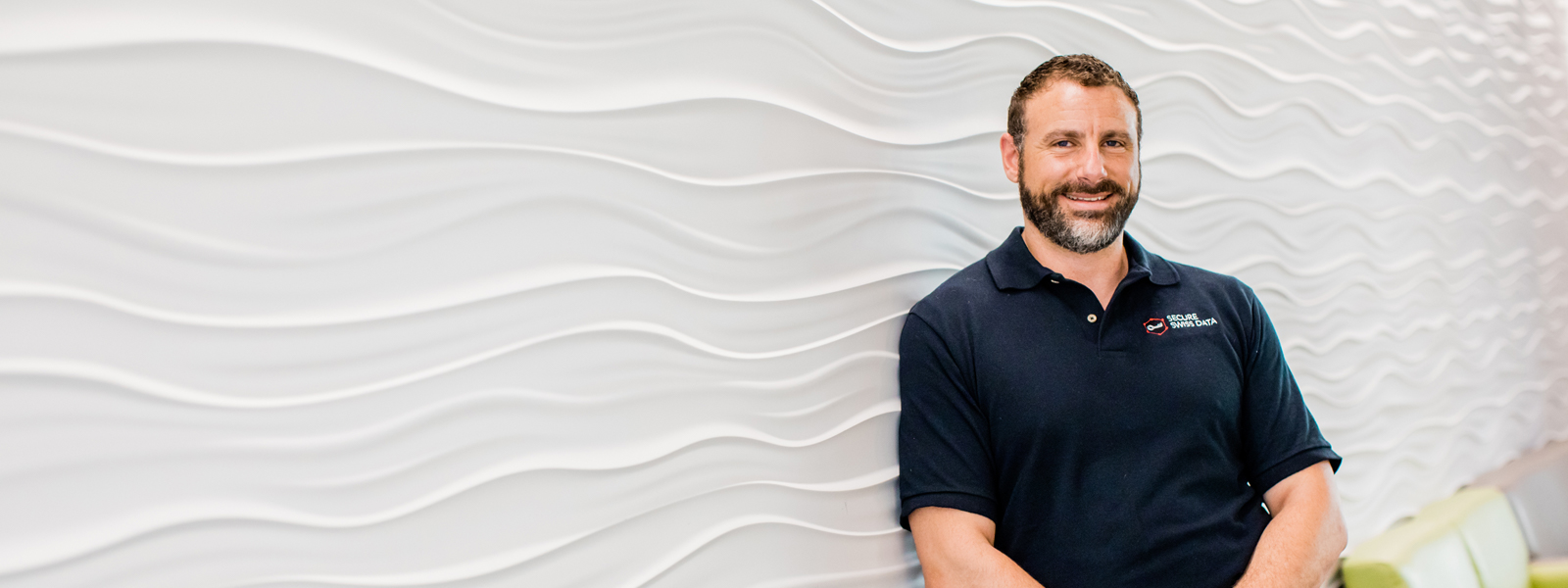Living our lives online with increasingly more connected smart devices may make shopping, streaming, and driving easier, but it's also exposed us to threats including identity theft, data loss, phishing scams, and other cyberattacks.
When our personal information is held hostage, we can feel helpless and violated. Individuals, businesses, and even countries around the world can become victims when resourceful and sophisticated digital criminals are determined to invoke cyber harm.
David Bruno (HBA‘98) has devoted his professional life over the past 20 years to providing security protection to everyone who needs it. Splitting his time between Thunder Bay, Montréal, and Lucerne, Switzerland, David specializes in anti-fraud and anticorporate espionage systems for banks and financial institutions worldwide. He’s also worked tirelessly with businesses and government to change the way we detect and deter cybercriminals.
A Mother’s Love
David’s work ethic developed while helping out in the family business: Donato’s Bakery on Court Street, first started by his mother's family, was founded upon the 100-year-old bread-making traditions of her grandmother, who lived and baked in Simbario, a southern mountain town in Calabria, Italy. David often accompanied his late father on trips to Italy for rare ingredients like black anise seeds, which they hand picked.
“You don’t realize it when you’re in high school, but one of the things I was taught from the get-go is if someone’s hungry, don’t wait for payment. Just feed them,” recalls David.
All of this translates later to humanity: If you can help your fellow man, don’t think; just do it.
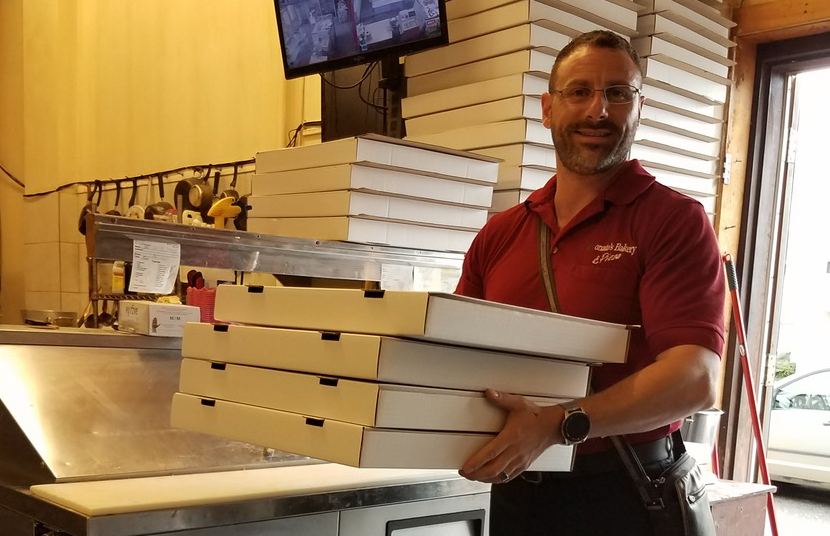 Today, David’s two brothers Donny and James operate the bakery while he lends his internet and sales expertise. Through the years, David picked up valuable life skills about business and community-building.
Today, David’s two brothers Donny and James operate the bakery while he lends his internet and sales expertise. Through the years, David picked up valuable life skills about business and community-building.
Model Citizen
David’s interest in politics and policy was piqued while studying for his bachelor’s degree.
"Lakehead shaped my life; it was the best education ever," he says. "Everything about the University was so nurturing, and I always felt supported. If you had a problem, they helped you."
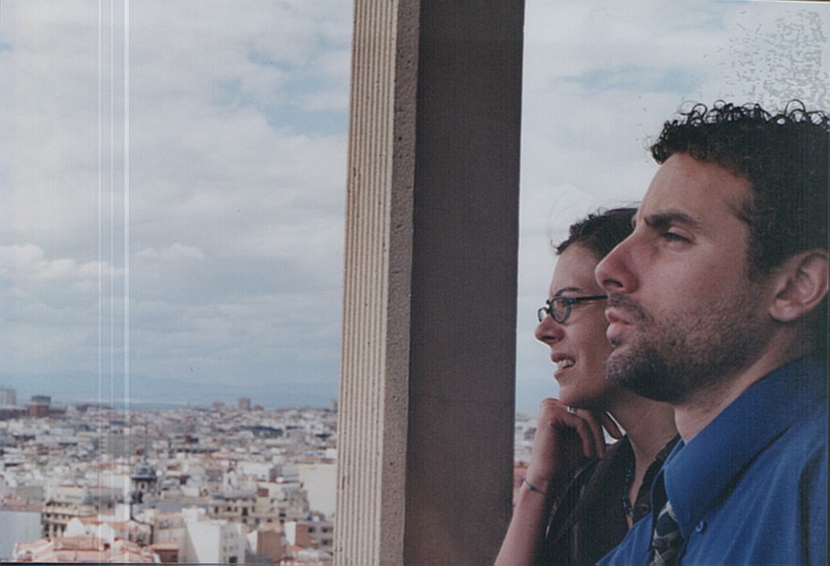 David and his friend Amelie gaze over the rooftops of Madrid where David worked for the Spanish company Quality Telecom.
David and his friend Amelie gaze over the rooftops of Madrid where David worked for the Spanish company Quality Telecom.
Along with a full course load and work at the bakery, David served part-time in the Canadian military as a second lieutenant in logistics. His academic and extra-curricular success – including leading a student club that attended the Model United Nations Conference in New York – put him on the radar for many accolades, including Lakehead University’s President’s Award, the Princess Beatrice Award for Leadership and the Margaret S. Sideen Award for Excellence. David was also awarded the Rotary Club’s International Ambassadorial Scholarship to study for a master’s degree abroad.
“I asked myself: Where is the biggest and best adventure? And I chose the University of Madrid, which was the best decision,” he recalls.
Taking a Global View
Fluent in English, French, Spanish, and Italian, David worked as an interpreter at the Canadian Embassy in Madrid from 1998-2001 after completing his master’s degree, before being tapped to run Quality Telecom’s new international office. As the company’s business development manager, David split his time between Barcelona and Montréal, and his fascination with cybersecurity began.
“My boss, Jose Chillerón, was providing an SMS warning system to banks and financial institutions that was absolutely brilliant, and still in use today – every time you use a credit card, you get an alert by SMS,” recalls David.
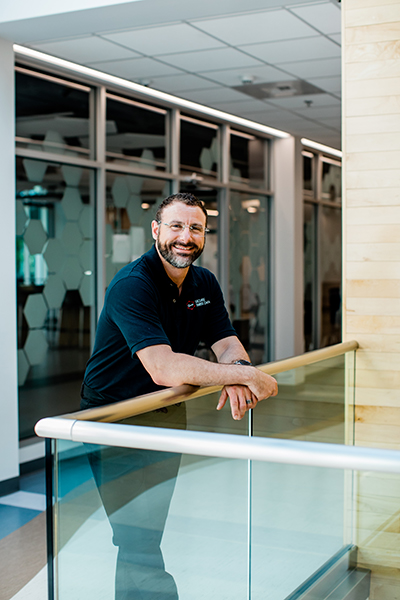
As David’s career advocating for fraud prevention systems advanced, he continued studying data security threats and topics like identity theft, anti-money laundering, and Distributed Network Attacks – also known as Distributed Denial of Service (DDoS). After 13 years at Quality Telecom, David founded eCarteBlanche, a prepaid payment and payroll company. He also became increasingly aware of the use of surveillance, data mining, and online harassment around the world, whether it affected LGBTQ people in authoritarian countries, vulnerable young women being tracked and sold into slavery, or refugees seeking safety for their families.
Convinced that individuals and companies needed better privacy protection, he realized that private security providers, niche data-protective platforms, and cybersecurity software developers needed to step up. So he did just that. In 2015, David launched Secure Swiss Data, a global cybersecurity firm and one of the first companies to provide an all-in-one end-to-end encrypted email, calendar, file storage, and file-sharing facility directly to consumers.
Escaping the Email Trap
David believes we all need to understand the potential dangers lurking in cyberspace, including destructive bots and foreign interference in democratic elections worldwide.
“When people first began putting everything online, we didn’t know the implications,” he says, adding that the advent of Google, Yahoo, and Facebook was a game changer.
The number one spy tool? Our emails.
“Email goes through many systems, acting like a postcard: Every time you send it, it’s being read by as many servers as it’s touching,” explains David, adding that the way to protect our emails is by encrypting them, which he likens to an envelope.
David believes in prioritizing cybersecurity for both citizens and governments, and offering better protection through the encrypted data services his company provides. Unfortunately, most people don’t have any kind of email encryption software, or even know what it is, he says.
“Our main focus is end-to-end encrypted emails, where only the sender and the receiver are able to read the email; everything in between is scrambled, and it comes across in every server as static,” explains David.
“A lot of governments are saying, ‘If you’ve got nothing to hide, give it to us’, but our motto is: ‘You may not have something to hide, but we all have something to lose.’”
Teaming Up with Lawmakers
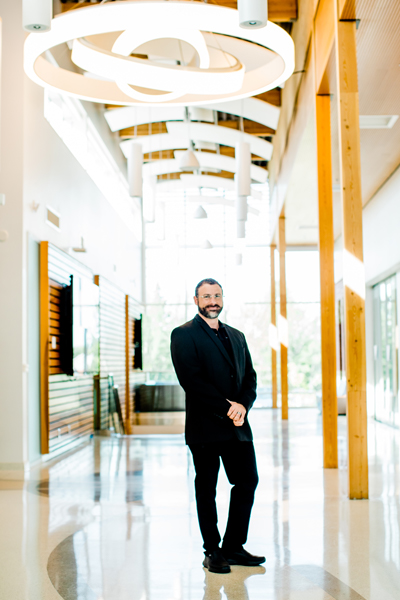 David’s white papers on cybersecurity have assisted some Canadian ministers in designing national guidelines, and he played a pivotal role in developing Canada's Digital Charter, a comprehensive guide to fighting cybercrime that was released in May 2019 by Navdeep Bains, the federal minister of innovation, science and economic development.“Before, we had a patchwork of laws – copyright, personal protections, the Privacy Act – being applied to the digital age, but the problem was if you got into trouble, you just didn’t know which one to litigate with,” he explains. “So when the government called out to citizens and experts to help fix this problem, I saw an opportunity to galvanize everything into one digital charter that would really change the way we treat criminals in a digital situation.”
David’s white papers on cybersecurity have assisted some Canadian ministers in designing national guidelines, and he played a pivotal role in developing Canada's Digital Charter, a comprehensive guide to fighting cybercrime that was released in May 2019 by Navdeep Bains, the federal minister of innovation, science and economic development.“Before, we had a patchwork of laws – copyright, personal protections, the Privacy Act – being applied to the digital age, but the problem was if you got into trouble, you just didn’t know which one to litigate with,” he explains. “So when the government called out to citizens and experts to help fix this problem, I saw an opportunity to galvanize everything into one digital charter that would really change the way we treat criminals in a digital situation.”
David’s contribution to prioritizing cybersecurity for citizens and governments involved making social media platforms responsible.
“If they’re circulating hate crimes, for example, don’t let them hide behind the fact that they're a platform registered in a country that makes them immune to hateful or hurtful things. I helped create a document to help clarify how to act online and how to prosecute if you’re wronged and that helped lead to the 10-point Digital Charter, and I’m very proud of that.”
Privacy, Politics, and the Pandemic
David’s company recently signed a technology agreement with Qnext, the Toronto-based developer of the FileFlex Zero-Trust-Architecture remote access, file sharing suite.
“David has many great qualities when it comes to malware analysis, risk analysis and mitigation, and cloud security, and he’s positive and bubbly all the time,” says Qnext president and CEO Anthony DeCristofaro.
“He believes that making more secure systems for everyone makes cybersecurity easier for the largest stakeholders in the technological arena. David is a great team player and an innovative thinker with strong communication skills and he has business acumen combined with a strong cybersecurity skill set, which is hard to beat.”
David’s talents are being put to good use as many employees continue to work from home.
“The problem is we have not allowed our security to catch up with the need for these types of changes,” he notes.
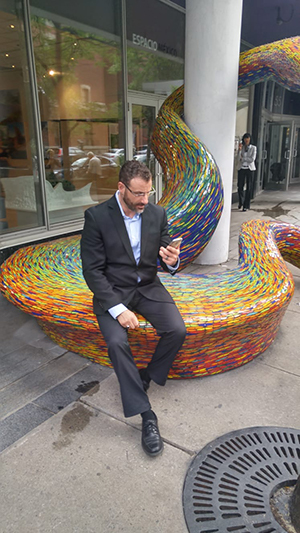 In his recent white paper about cybercrime during the coronavirus pandemic, David reported that the most common threats emerging with a remote workforce include phishing, malware, and ransomware attacks.
In his recent white paper about cybercrime during the coronavirus pandemic, David reported that the most common threats emerging with a remote workforce include phishing, malware, and ransomware attacks.
“For many employees, connecting to the corporate server through a virtual private network (VPN) isn’t something they’re familiar with. Considering how rapidly the COVID-19 pandemic spread, it seems likely that corporations may have rushed their instructions and guides for employees to connect,” he wrote in his report.
With cybercriminals finding vulnerabilities in home network infrastructure and private internet connections to launch their attacks, businesses and governments could end up with billions of dollars in additional costs.
That’s why today more than ever, David’s commitment to free public education is so crucial. As a member and contributor of the Electronic Frontier Foundation, and the Northern Policy Institute, he’s been determined to share his knowledge so people – especially vulnerable populations – understand their digital civil liberties and how to protect themselves.
In February 2020, David’s company merged with SafeSwiss, a global leader in encryption, which will extend the reach of his ongoing efforts to mitigate cyberattacks and data breaches, which are on the rise.
“We have premium services to help pay for the whole system, but if you don’t give something for free, people just won’t take it on,” he says. “One of our philosophies is that privacy is a human right, and if we didn't provide at least part of it for free, then we go against our own ethos.”
Bringing it All Home
For all his global career success, David is equally proud of the difference he’s made in his own backyard, says his spouse, Brock Adams.
“David’s family is deeply involved with the local community,” says Brock. “I’ve helped them deliver food to food banks and elsewhere, and upon marrying David, I found myself carrying a change purse – something I had never done before – with the intention of having money to give to the poor when you passed them. David does this without fail. He cares deeply about people, and his passion here is genuine and selfless. There’s just an infectious goodness to David.”
David notes that he is motivated to constantly do more, thanks to his mother, Caterina (Cathy).
“She’s been awarded the Sovereign’s Medal for Volunteers by Queen Elizabeth II, through the Governor General, and she’s my inspiration,” he says.
Together, David’s family has sponsored Syrian refugees, employing several in their bakery.
“My mother has shown to me that if it takes five minutes or an hour to help someone else, just do it as much as you can, and don’t stop,” he says.
Two Cybersecurity Strategies to Protect your Privacy
Most people don’t reveal personal secrets to strangers, but all bets are off in the digital world, where we tend to share everything online. Here are David’s tips to safeguard your data and identity:
Use an end-to-end encrypted server for your email
“At SafeSwiss or our compatriots at ProtonMail, there’s an easy option: Sign up for free and start using it,” says David.
Be alert about common cyber threats.
“Don’t open phishing attacks,” advises David. “Malware is constantly attacking one’s computer, especially when people are working from home without a VPN.”


